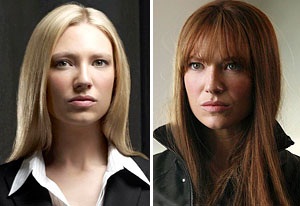 Received my contributor copy of Dead Reckonings 8 on Friday. It contains my review of Dan Simmons’ Black Hills, which I submitted for issue 7 but got held over. Mildly chagrined by the conspicuous typo on the cover.
Received my contributor copy of Dead Reckonings 8 on Friday. It contains my review of Dan Simmons’ Black Hills, which I submitted for issue 7 but got held over. Mildly chagrined by the conspicuous typo on the cover.
I received a referral about a horror magazine (one I’d never heard of before, but apparently they have wide distribution in the US and Canada) who was looking for someone to write an article. Talked to the editor on Friday afternoon and we came to terms, so I’ll be doing a piece for them for an upcoming issue. Always nice to branch out into new markets.
When reading Arthur Conan Doyle’s The Sign of Four, I came across an interesting word: Feringhee, which is a Hindu term for Europeans. You know what it immediately reminded me of? Ferengi, the big-eared avaricious traders from the Star Trek universe. When I started looking into it, I found that I wasn’t the first person to make that connection. I wonder if that was on the creator’s mind when he came up with the alien species. Etymology fascinates me.
For instance, when Fringe fans started bandying around words to describe the versions of characters seen in the parallel universe, one that caught on quickly was “Walternate,” for the alternate Walter. Walter himself started using it recently. When it came to Olivia, there were all manner of phrases coined, but I first called her Fauxlivia in my post of September 24, 2010. Prior to that point I’d never heard anyone else use it. Much to my surprise, that’s the word Walter used to describe alt-Olivia in this week’s episode. I can’t take credit for coming up with the word—a google search reveals that it had been used by the show runners a month before that—but I still felt somewhat smug about it all the same.
This week’s episode was another one of those direction changers. The revelation of a mole in Fringe division had everyone pointing fingers at everyone else. How obvious was it that the cavalier doctor performing tests on Peter was involved? The fact that Walter didn’t take a shine to him was a strong indicator, and the lingering camera made it even more likely. Then when he “leaves work early,” it’s all but a certainty. It was a nice bit of quasi-misdirection, as the guy was definitely a plant, but he wasn’t the mole as we later learned, and it made us (me, at least) completely miss the huge clue of Peter’s lie to Walter about being out at night. Peter is suddenly far removed from the romantic who ordered his favorite book for Olivia to read so she might understand him better. Now he’s lying to her and destroying shapeshifters. His voice was cold when he said he wasn’t doing anything wrong because they weren’t human. Walter explains the change as reciprocity, and Peter doesn’t argue. “What are we going to do about it?” he asks, as if it was the most academic of questions.
This week’s levity came from Walter’s impulsiveness. “I’ve snorted worse,” he tells Nina after rashly inhaling the altered DNA, only to have it turn out to be the chimpanzee sample instead of his own. “It’s growing chimp DNA in your brain?” Astrid asks, aghast. “Just a bit,” Walter responds. “Are you sure it isn’t dangerous?” she replies. “No. But it will pass.”
And then there was the dark humor when Peter was tussling with his last victim, who got the upper hand and threatened to harm him. Apparently Peter isn’t to be killed, but maiming him isn’t off the table, as he would serve them just as well with nine fingers. Peter turns the table with a meat clever and wallops off a handful of the other guy’s fingers. Nice touch.
We watched Secretariat on Friday evening. I’m old enough to remember when he was on the cover of Time and Newsweek, and the excitement surrounding the Triple Crown. A nice, feel-good movie. It took me about half an hour to recognize Diane Lane, and it was great seeing John Malkovich in an offbeat role as the horse trainer. The movie lacks any real suspense whatsoever, because we all knew how it was going to turn out from the beginning, but it was fun playing along all the same. Had to wonder, though, about the risks she took with the family, both emotionally and financially, risking it all on a few horse races. It could have been a disaster, and her absence from her four children for all that time was glossed over as if it had little or no impact on them.

